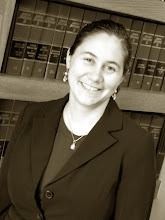 Does a person lose all of his or her property by filing under Chapter 7?
Does a person lose all of his or her property by filing under Chapter 7?Usually not. Certain property is exempt and cannot be taken by creditors, unless it is encumbered by a valid mortgage or lien. A Debtor is usually allowed to retain his or her unencumbered (or unsecured) exempt property. Depending on the law of the local state, property that is exempt in a Chapter 7 case may be either property that is exempt under state law or property that is exempt under the Bankruptcy Code.
When must a Debtor appear in Court in a Chapter 7 case and what happens there?
Most Debtors do not have to appear in "Court". However, every Debtor must attend a hearing called the "meeting of creditors". This hearing takes place about a month after the case is filed and usually occurs in a relatively informal setting in front of the Chapter 7 Trustee. No Judge will be present. At this hearing, the Debtor is put under oath and questioned about his or her debts and assets by the Trustee. In most Chapter 7 consumer cases no creditors appear in Court; but any creditor that does appear is usually allowed to question the Debtor. If the Bankruptcy Court decides not to grant the Debtor a discharge or if the Debtor wishes to reaffirm a debt and is not represented by an attorney, there will be another hearing about three months later which the Debtor will have to attend.
What happens after the meeting of creditors?
After the meeting of creditors, the Trustee may contact the Debtor regarding the Debtor's property, and the Court may issue certain orders to the Debtor. These orders are sent by mail and may require the Debtor to turn certain property over to the Trustee, or provide the Trustee with certain information. If the Debtor fails to comply, the case may be dismissed and the Debtor may be denied a discharge.
What is a Trustee in a Chapter 7 case, and what does he or she do?
The Trustee is an Officer of the Court, appointed to review the Bankruptcy Petition, question the Debtor, collect the Debtor's nonexempt property, and pay the expenses of the estate and the claims of creditors. In addition, the Trustee has certain administrative duties in a Chapter 7 case and is the officer in charge of seeing to it that the Debtor performs the required duties in the case. A Trustee is appointed in a Chapter 7 case, even if the Debtor has no nonexempt property.
What are the Debtor's responsibilities to the Trustee?
The law requires the Debtor to cooperate with the Trustee in the administration of a Chapter 7 case, including the collection by the Trustee of the Debtor's nonexempt property. If the Debtor does not cooperate with the Trustee, the Chapter 7 case may be dismissed and the Debtor may be denied a discharge.
What happens to the property that the Debtor turns over to the Trustee?
It is usually converted to cash, which is used to pay the fees and expenses of the Trustee and to pay the claims of unsecured creditors. The Trustee's fee is usually $45.00 plus a percentage of the amount collected from the Debtor.
What if the Debtor has no nonexempt property for the Trustee to collect?
If, from the Debtor's Chapter 7 forms, it appears that the Debtor has no nonexempt property, a notice will be sent to the creditors advising them that there appear to be no assets from which to pay creditors, that it is unnecessary for them to file claims, and that if assets are later discovered they will then be given an opportunity to file claims. This type of case is referred to as a no-asset case. The vast majority of all Chapter 7 cases that are filled are no-asset cases.
We are here to answer your questions, give us a call to learn how you can take control of your situation.
Neil S. Shankman, Attorney, Brunswick, Maine









